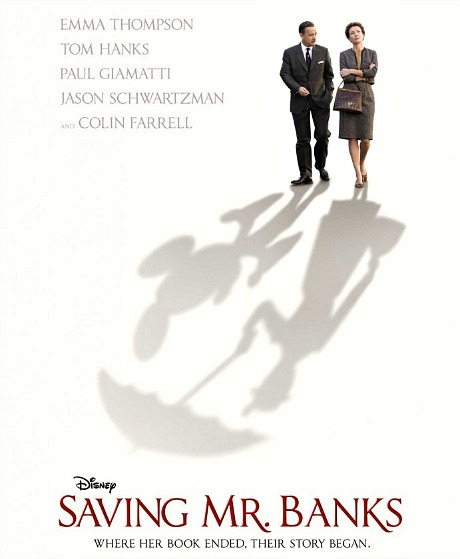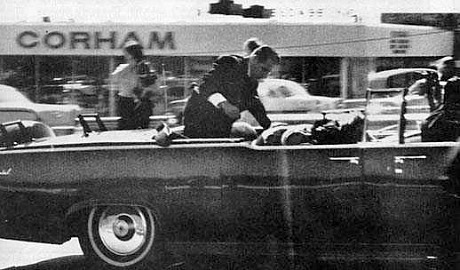Reza Azlan, author of “Zealot: The Life and Times of Jesus of Nazareth,” apparently decided that the exposure from a Fox News interview was worth having to field a barrage of prejudicial, bone-dumb questions from “Spirited Debate” host Lauren Green. Azlan’s polite but appalled responses are hilarious. He knows there’s no getting through to idiotic Christians with fixed agendas. Watching him struggle to maintain a calm, even-toned composure is akin to an educator trying to explain the basics to an under-educated psychopathic teenager.
Daily
Jasmine Is Big
Approving reviews alone aren’t the reason for the phenomenal opening-weekend haul ($102 grand average on six screens) of Woody Allen‘s Blue Jasmine. It’s approving reviews plus Jasmine being the first taste of an award-calibre “fall movie” (“Okay, so it’s a little early!” as Nehemiah Persoff might have said) plus over-35s being sick to death of bullshit zombie ComicCon franchise movies plus the world-class regal swanbird elan of Cate Blanchett. Any HE regulars who’ve seen Jasmine with, you know, thoughts?
Rescue This Movie From Disney Marketers
First the Saving Mr. Banks trailer, which sold the film as something jokier and more comedically cloying than Kelly Marcel‘s first-rate script. And now the one-sheet, which uses adolescent-friendly cartoon silhouettes to indicate the characters played by Tom Hanks and Emma Thompson. It’s saying to the dummies out there, “This movies will be as easy to understand and digest as an old Mickey Mouse cartoon.” I’m getting more and more worried about this thing by the minute.

No-Go On Slow-Mo
I really, really don’t like it when directors use slow-mo for action scenes. They should just stage it and shoot it like it looks when it happens for real, and the audience notices what it notices. Slow-mo coolness caught on 46 years ago with the machine-gun death scene in Bonnie and Clyde and then peaked two years later when The Wild Bunch premiered. And that was that. It’s been “over” for a long time. Our observational powers are much faster now. Either you get the natural-speed coolness aesthetic or you don’t.
ComicCon Seppuku
“It’s unlikely that the studios are going to drastically change course as the result of one bad summer,” says Variety exec editor Steven Gaydos in a Xan Brooks Guardian piece about Hollywood’s “Summer of Doom.” “However, it is imperative they diversify their slate. They’re laying down too many big bets without anything else on the agenda. They have to kick their dependency on $300 million blockbusters. If they don’t, they’re going out of business.”
“Look at Comic-Con and then tell me if you think Hollywood is going to cut back on its comic-book dependency. Look at how that event was covered by the critical establishment and you’ll see how everything still validates the conglomerates’ bottom line. By and large, people are not looking for intelligent, edgy, mid-range movies. They’re looking for superheroes and special effects. They’re looking for amusement rides. They’re like the kids in Pinocchio who still want to go to Pleasure Island. They’re voting to be donkeys.”
“I Tried To Help You…”
I’ve been watching the original widescreen version of Elia Kazan‘s East of Eden (1955) since it came out on laser disc in…what was it, ’98 or thereabouts? The reasons I re-watch it every two or three years are (a) the performances — not just James Dean‘s but those from Julie Harris, Jo Van Fleet, Raymond Massey, Albert Dekker and Burl Ives, (b) Leonard Rosenman‘s furious, cymbal-crashing score, and (c) the scene in which Dean and Van Fleet trade observations about their similar natures and about what a prig Massey is and was, and (d) Dean and Harris’s ferris-wheel kissing scene. The Bluray…I don’t know when the Bluray comes out but probably sometime by mid-October.

Hanks Stands Ground
I don’t know what I’ve been thinking all along about Paul Greengrass‘s Captain Phillips (Columbia, 10.11) but in the wake of the George Zimmerman-Trayvon Martin tragedy are you going to tell me that the Ted Nugent crowd isn’t going to perceive this movie as being about Tom Hanks, the Ultimate Mild-Mannered, Extra-Decent White Guy Whom Everyone Likes, going up against some scary, no-good, bad-ass black psychopaths waving guns around? I’m not saying Greengrass’s film is going to stoke racial fires in any way, shape or form. I’m talking about what Captain Phillips looks like on this international poster, and how the Zimmerman-sympathizing Bubbas out there are going to respond in gut-level terms. Be honest. Our culture is our culture. Tell me I’m crazy because I’m not.

Remember Italian Ice Cups?
There’s real-deal Italian ice (i.e., the kind I used to eat when I was a kid) and there’s the bogus corporate kind, which is what this place in Point Pleasant is selling. When I was young Italian ices were sold in round cardboard containers with a little wooden spoon. You’d peel off the top lid and the ices (my favorite was cherry) would be nearly rock-solid. It would always take a few minutes of chipping away on a hot summer’s day before the ice gradually softened and you could eat actual chunks of it. But this Point Pleasant joint is selling….I don’t know what to call it but it’s like a Slurpee sorbet that’s just firm enough to hold its shape.

Stephenie Meyer Fans Will Be Watching
For me (and, I suspect, for most of us), Relativity Media’s Romeo And Juliet (10.11) will hinge on how well Hailee Steinfeld and Douglas Booth can breathe life into William Shakespeare‘s prose. I’m presuming that Steinfeld, who turns 17 on 12.11.13 but who was 15 when during principal photography, has the chops to be at least pretty good as Juliet. Stellan Skarsgard, Damian Lewis, Paul Giamatti and Ed Westwick costar. Julian Fellowes‘ adaptation was directed by Carlo Carlei.
It Is What It Is
Yesterday afternoon a Deadline story announced that Exclusive Media’s 9.20 theatrical unveiling of Peter Landesman‘s Parkland was an “Oscar-Season Release Date.” I wouldn’t go that far. True, the JFK assassination drama will be opening soon after the slated Venice and Toronto film festival showings (and perhaps with critical huzzahs to boot), but in my book a 9.20 release is just three weeks after Labor Day. A real Oscar-season release means mid-to-late October and beyond. It means you’re wearing jackets and sweaters on your way to the theatre.

A Few More
On 7.25 Indiewire contributor Matthew Hammett Knott posted a piece called “Heroines of Cinema: The 10 Most Exciting Young Female Directors in the World Today.” Actually not that young — most of the women mentioned are their mid to late 30s. Anyway, in addition to Sally El-Hosaini (My Brother The Devil), Miranda July (The Future), Celine Sciamma (Tomboy), Lucia Puenzo (Wakolda), Dee Rees (Pariah), Mia Hansen (The Father Of My Children), Lena Dunham (Girls), Haifaa Al-Mansour (Wadjda), Sarah Polley (Take This Waltz, Stories We Tell) and Ava Duvernay (Middle of Nowhere, the forthcoming Selma), I would add Shannah Laumeister, director of the elegant and admirably ballsy Bert Stern: Original Madman, Circumstance director Maryam Keshavarz and Sam Taylor-Johnson (a.k.a., Sam Taylor-Wood), director of the forthcoming 50 Shades of Grey.
Impaled
Stories rise and fall so quickly these days that print media almost always seems to be trailing. John Cuneo’s New Yorker cover portraying the ghastly death of Anthony Weiner‘s mayoral campaign is one of the rare instances in which a dead-tree publication seems right on top of it. I mean, not even a day or two late.

